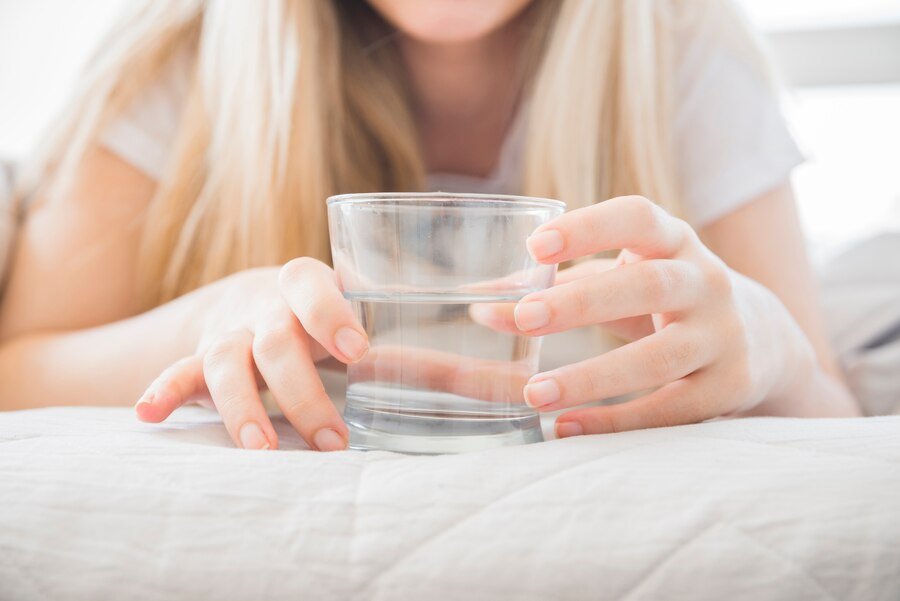It is recommended that the first thing you should do each morning after brushing your teeth is to drink a glass of water. Beginning and ending the day with a glass of water and having at least six glasses in between is necessary to stay hydrated. The water we consume comes from different sources, not all of which we can trace. Oftentimes, water that flows out of your taps is full of impurities, bacteria, viruses, and contaminants. Consuming these without filtration can have a detrimental impact on your health. Water filters are the best and most widely used method to filter out impurities and contaminants. There are various options depending on your needs available in the market. Since each has its advantages and disadvantages, it is up to you to pick the most suitable one. Livpure has a filter for UV+UF water good for health. Keep reading to understand whether you should get a filter from the UF or UV water purifier list or invest in a UV + UF Water Purifier in India.
But before you decide to buy one, learn more about the difference between a UV and UF filter so that you can make an informed decision!
UV Water Filter: What is it?
An ultraviolet purifier is made to treat unsafe water using germicidal ultraviolet light. The UV wavelength disrupts the DNA of any living organisms in the water.
Drinking bacteria-infested water can harm your digestive tract, which is why having a UV filter is beneficial. UV water is good for drinking since it will eliminate all bacteria, viruses and fungi and keep you safe and healthy.
UV water filters are the most effective when the water is clear. It will have to be used along with a sediment filter if the water also has dirt and debris. Most often, it is the last filter that water passes through before you drink it.
The ultraviolet purifier can be used to treat water to get rid of diseases like giardia, salmonella, E. Coli, Hepatitis B, and Cholera, and filter out algae and fungi.
The advantages of a UV filter are that it eliminates 99.9% of microorganisms to provide you with pure and germ-free water. It is cost-effective and keeps you at bay from waterborne diseases.
However, it is not adequate to treat muddy water.
UF Water Filter: What is it?
A UF (ultrafiltration) water filter is a membrane filtration process that is quite similar to reverse osmosis. It uses hydrostatic pressure to push water through a semi-permeable membrane.
The filter is a barrier for suspended solids, viruses, bacteria and other pathogens. It produces water that has low silt density and high purity.
UF disinfection can be used to treat water for campylobacter, salmonella, E. Coli, shigella, rotavirus, norovirus, and hepatitis A. The best part about this filter is that it does not require electricity to function and is an effective way to eliminate pollutants.
It can be used to treat muddy water, unlike a UV filter. However, it cannot remove dissolved salts.
UV and UF water filters: What are the similarities and differences?
UV and UF water filters do have certain features that differentiate them from each other, but they also have characteristics common to water purifiers, in general:
- They do not remove dissolved solids: Neither UV nor UF water filters are capable of removing dissolved solids.
- The purification process is chemical free: The water filters do not use chemicals to remove impurities in your water.
- Suitable for low TDS water: These water filters can be used for water with low total dissolved solids levels from a river or lake since it cannot eliminate the TDS.
- Does not improve the taste of water or its colour: You cannot improve the taste of water or its colour by using a UV or UF water filter.
When it comes to differences, however, it is important to note that a UV filter needs electricity, a suitable water pressure pump, and an active connection to running water. Further, the bodies of the pathogens remain the water whereas in a UF filter, they are blocked from entering the pure water. Because of this, a UF water filter needs to be appropriately cleaned at least once a week. This is because all the impurities get stored in the internal filter, and it can get clogged if not cleaned. On the other hand, a UV filter does not require any cleaning.
UV + UF Water Purifier in India
What's a UV + UV water purifier filter? In India, you can even get a UV + UF water purifier. Livpure's Glitz Water purifier (UV + UF) is suitable for municipal water and TDS up to 200ppm.
This particular water filter does not change TDS levels, has a stylish design and provides a warranty of up to 12 months.
Summing Up
Now that you have read the features of the two filters and their differences in detail, it is time to make a decision. What type of filter is better? Is UV purification is safe, or is UF safer?
Each water filter has its own advantages and disadvantages. UV is a safe water purifier, and so is the UF filtration system. However, if you want to ensure that the filter you get leaves no stone unturned to produce the healthiest, safest drinking water for you and your family, then you should invest in a filter that combines both.
Are you wondering where you can purchase such technology for your own house? Look up the Livpure UV + UF Water Purifier. The UF+UV water is good for drinking. A filter like this combines features of both the technologies, so you get the best of both worlds in your glass of purified drinking water.



